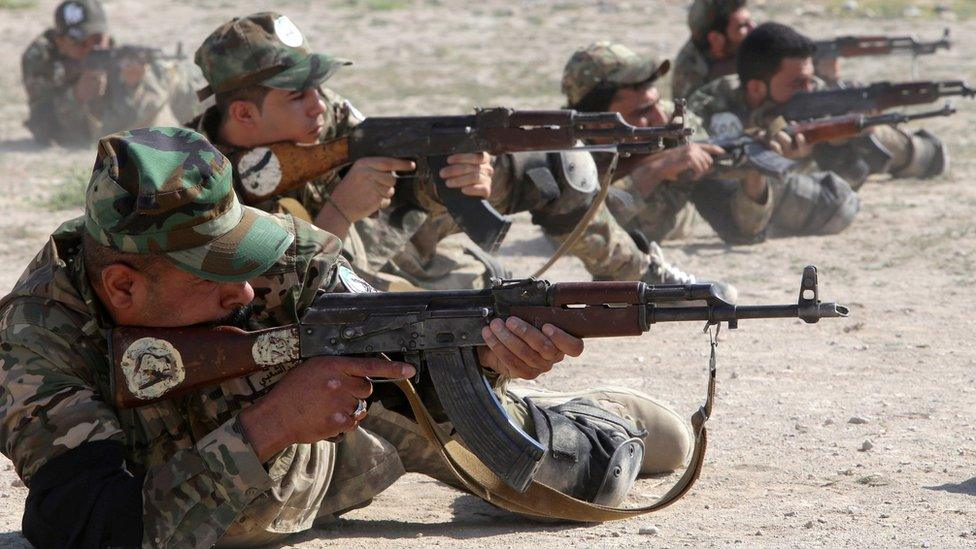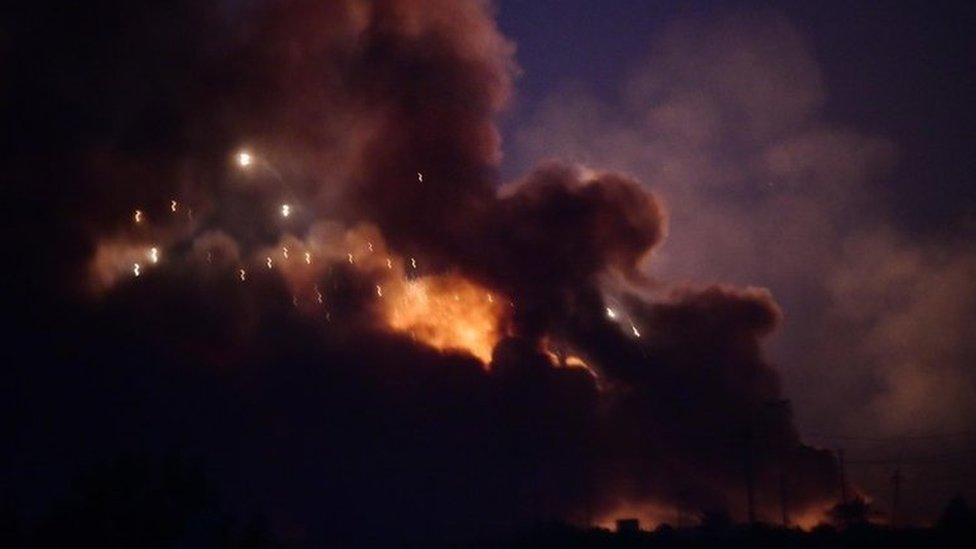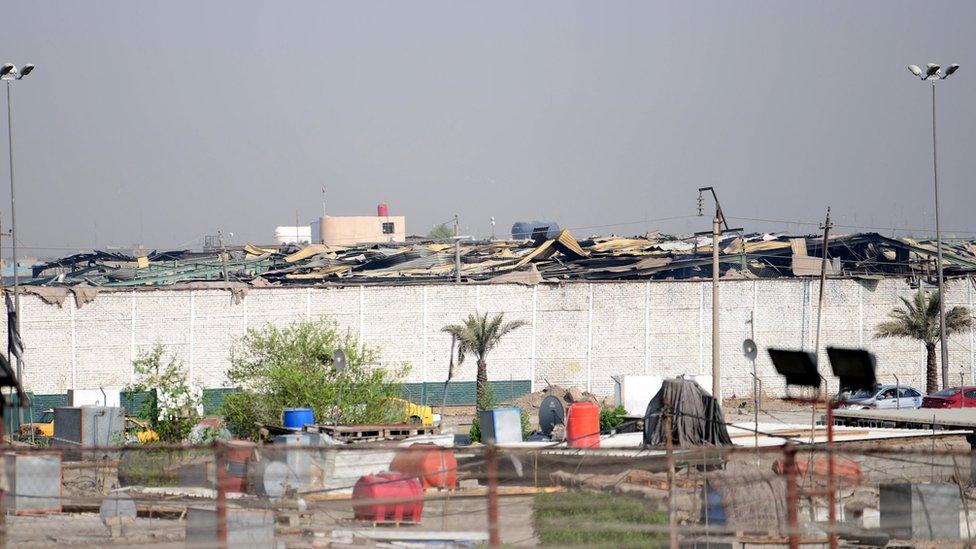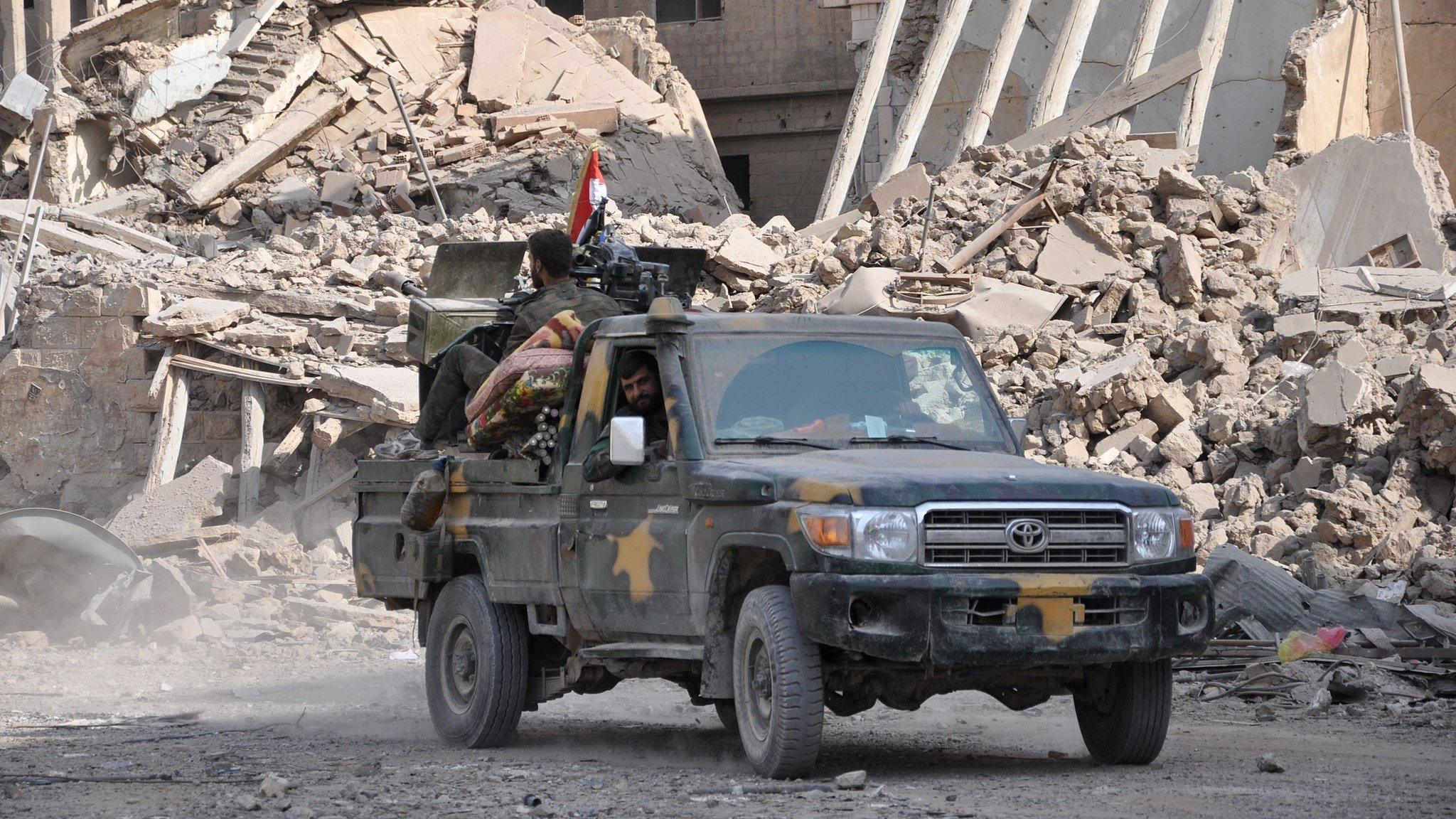Iraq paramilitary chief plays down allegation against US
- Published

The Popular Mobilisation's fighters played a key role in the war against IS in Iraq
The head of an Iran-backed paramilitary force in Iraq has distanced it from a claim by his deputy that the US was responsible for several recent explosions at its arms depots.
Faleh al-Fayad said "external players" were behind the blasts, but that further investigation was needed to be able to pinpoint the blame.
His deputy said the US had brought four Israeli drones into Iraq to target the Popular Mobilisation's positions.
The US dismissed the allegation.
Israel did not comment, although its prime minister said this week that it "would act - and currently [is] acting - against [Iran], wherever it is necessary".

An explosion on 12 August near Baghdad sent rockets shooting though the capital
On Tuesday night, a large blast hit an arms depot belonging to one of the Shia militias that dominates the Popular Mobilisation near Balad airbase in Salahuddin province, north of Baghdad.
An even bigger explosion at an arms depot at the al-Saqr military base near Baghdad on 12 August killed one civilian and wounded 29 others.
Two Iranians were reportedly killed by a blast at a base in Amerli, also in Saluhddin, on 19 July.
On Wednesday, the Popular Mobilisation's deputy leader, Abu Mahdi al-Muhandis, issued a statement saying the US was "the first and last party responsible" for the explosions and that his force would use "all means at its disposal" to defend itself.
Associated Press meanwhile reported that an Iraqi government fact-finding committee had concluded the explosion was the result of a drone strike, external.
But the following day, Faleh al-Fayad stressed that the statement by his deputy did "not represent the official position of the Popular Mobilisation".
He said preliminary investigations indicated that the blasts were "carried out and planned by external players".
"The investigations will continue until the responsible entities are accurately identified to be able to take the appropriate stances," he added.

Iraq's government banned unauthorised military flights over Iraq after the 12 August explosion
The Popular Mobilisation's fighters played a key role in the war against IS.
With the help of Iranian military advisers, weapons and funding, they prevented IS militants reaching Baghdad in 2014 and later helped Iraqi security forces regain control of the country.
The US, which also supported Iraqi security forces against IS, has said several of the Shia militias in the Popular Mobilisation are directly controlled by Iran. It has accused the militias of targeting US diplomatic facilities in Iraq and warned that they may have been given Iranian ballistic missiles.
The US has designated one of the militias, Kataib Hezbollah (Hezbollah Brigades), as a terrorist organisation, and lists Abu Mahdi al-Muhandis as a "global terrorist".
- Published18 June 2018
